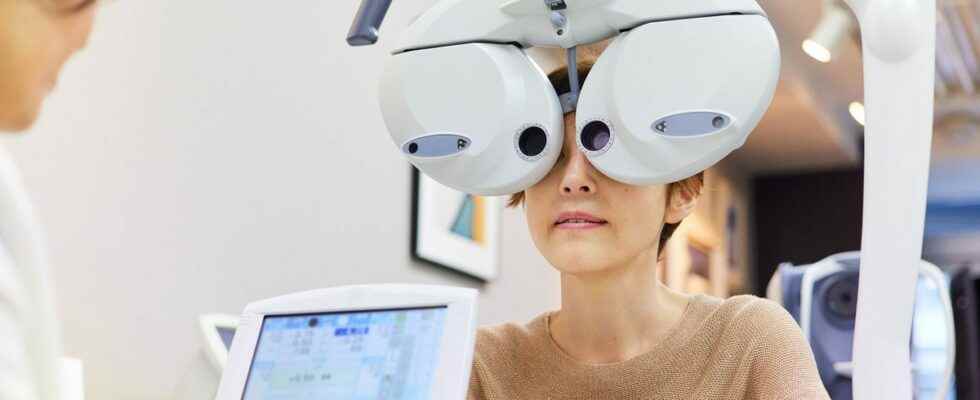Published ,
Reading 2 mins.
in collaboration with
Catherine Albou Ganem (ophthalmic surgeon)
The skills of orthoptists have been extended since April 27, after the publication of a decree. They can now prescribe glasses and contact lenses directly to their patients. A perfectible measure, according to Dr. Catherine Albou-Ganem, ophthalmic surgeon and member of the expert committee of Doctissimo.
This is a novelty that reinforces the skills of orthoptists, according to the decree implementing article 68 of the Social Security financing law for 2022. Their field of skills is expanding and it is now possible for them, since April 27, to prescribe glasses and contact lenses to their patients, without prior prescription.
Assessments for 16-42 year olds
Henceforth, orthoptists “having undergone appropriate training can therefore carry out, without medical prescription, visual assessments and prescribe the appropriate equipment. The age group of the patients concerned is however limited and is between 16 and 42 years old, for people with no contraindications, which are not yet specified. Another limit: the time since the last consultation. It must have taken place at an ophthalmologist “for less than 5 years” for spectacle wearers, “less than three years” for lentils.
Also, the orthoptist can also perform amblyopia screening for children aged 9 to 15 months, and refractive error screening for children aged 30 months to 5 years and refer parents to a specialist in case of trouble.
A solution to the timeout problem
Delays are often very long to obtain an appointment with an ophthalmologist. By opening up this skill to orthoptists, the government sees it as a solution to reduce waiting times for appointments. This would also allow easier access for people living in areas with fewer specialists.
Diagnostic delays?
If the government sees it as a solution, this expansion of skills may have some drawbacks, according to Dr. Catherine Albou-Ganem, ophthalmic surgeon in Paris: “If these orthoptists work with ophthalmologists, in an office, that’s very good because they will always benefit from nearby medical advice. On the other hand, for orthoptists practicing alone, I fear that some patients are victims of a delay in diagnosis”.
To limit the risks, the decree indicates that orthoptists must refer the patient to an ophthalmologist in the event of a contraindication, a strong/sudden drop in visual acuity or “any other situation or pathology requiring a medical consultation”.
Consult an ophthalmologist online
A measure “not sufficiently framed”?
Indeed, orthoptists are not authorized to carry out medical examinations of the eye, only the prescription of glasses and lenses is possible. “Fortunately, serious eye pathologies are rare, but I think this measure should have been regulated more closely” adds the specialist, who wonders if the measure will be able to answer the question of medical deserts, because nothing obliges orthoptists to settle in one region rather than another.

